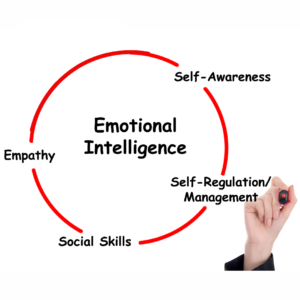In the intricate tapestry of workplace dynamics, amidst the hustle and bustle of deadlines and collaboration, lies a shadowy phenomenon that can erode an individual’s self-esteem, self-worth and trust in their judgement.
Gaslighting, a form of psychological manipulation aimed at destabilizing an individual’s perception of truth, thrives in environments where power differentials are pronounced and communication is apprehensive with ambiguity..
Gaslighting in the workplace often manifests in subtle yet deceptive ways. It may start with seemingly inoffensive comments or actions that undermine one’s confidence or question their competence. Over time, these tactics escalate, creating a toxic environment where self doubt and confusion reign supreme.
Victims of gaslighting may find themselves second-guessing their every decision, doubting their capabilities, and ultimately feeling isolated and powerless.
Gas lighting includes (but are certainly not limited to); changing deadlines (and not necessarily telling you), criticising acceptable work, changing requirements (and pretending they’ve told you), undermining you in front of others, saying they’ve said one thing when they’ve said another, denying and outright lying, having ‘plausible’ excuses when caught out for their inconsistent behaviour, and may also step into physical and sexual harassment.
Gaslighting is part of what is known as the “dark side” of emotional intelligence-when people use knowledge and understanding of emotions to manipulate others. As we all know, knowledge is power. We learn to perceive when and how others are attempting to gaslight and manipulate, we develop a self-defense mechanism, an “emotional alarm system”. When our alarm goes off, we know to be cautious, and possibly to avoid future dealings with the said person. Or, if that’s not possible or practical, we can limit our dealings with them and devise a plan that doesn’t put us at risk.
Emotional intelligence, often plugged as a cornerstone of effective leadership and interpersonal relationships, plays a pivotal role in untangle the web of gaslighting. At its core, emotional intelligence encompasses self-awareness, self-regulation, empathy, and social skills – qualities that empower individuals to recognize manipulation tactics, trust their instincts, and maintain a firm grasp on reality.
Self-awareness serves as the first line of defense against gaslighting in the workplace. By cultivating a deep understanding of their emotions, thoughts, and behaviors, individuals can discern when they are being manipulated and differentiate between constructive criticism and gaslighting tactics. Recognizing the signs of gaslighting – such as invalidation, trivialization, and deflection – allows individuals to reclaim their action s and assert their boundaries.
Self-regulation, the ability to manage one’s emotions and impulses, is equally essential in navigating gaslighting scenarios. In the face of gaslighting, emotions like anger, frustration, and self-doubt may run extensively, clouding judgment and worsening the situation. However, individuals with high emotional intelligence can regulate their emotional responses, maintaining tranquility and clarity amidst adversity. By remaining calm and composed, they deprive gaslighters of the emotional reaction they seek, thereby diminishing their power.
Empathy, the capacity to understand and share the feelings of others, empowers individuals to discern the underlying motives behind gaslighting behaviors. Rather than internalizing criticism or blame, individuals can empathize with the insecurities and vulnerabilities driving the gaslighter’s actions. This empathetic perspective fosters compassion and detachment, enabling individuals to respond with grace and assertiveness rather than succumbing to manipulation tactics.
Social skills, the ability to navigate social interactions effectively, play a crucial role in confronting gaslighting in the workplace. Individuals equipped with emotional intelligence, can engage in open and honest communication, set clear boundaries, and seek support from trusted colleagues or superiors. By fostering a culture of transparency and accountability, they create a hostile environment for gaslighting to thrive, thereby promoting trust, collaboration, and psychological safety.
In sum, navigating gaslighting in the workplace requires a multifaceted approach rooted in emotional intelligence. By cultivating self-awareness, self-regulation, empathy, and social skills, individuals can unveil workplace realities obscured by manipulation and deception. Armed with emotional intelligence, they can reclaim their sense of agency, foster healthy relationships, and cultivate a workplace culture built on trust, integrity, and authenticity. As we continue to navigate the complexities of modern work environments, let us harness the power of emotional intelligence to illuminate the shadows and forge a path towards a brighter and more equitable future and seek support from trusted colleagues or superiors. By fostering a culture of transparency and accountability, they create a hostile environment for gaslighting to thrive, thereby promoting trust, collaboration, and psychological safety.





Leave a Reply